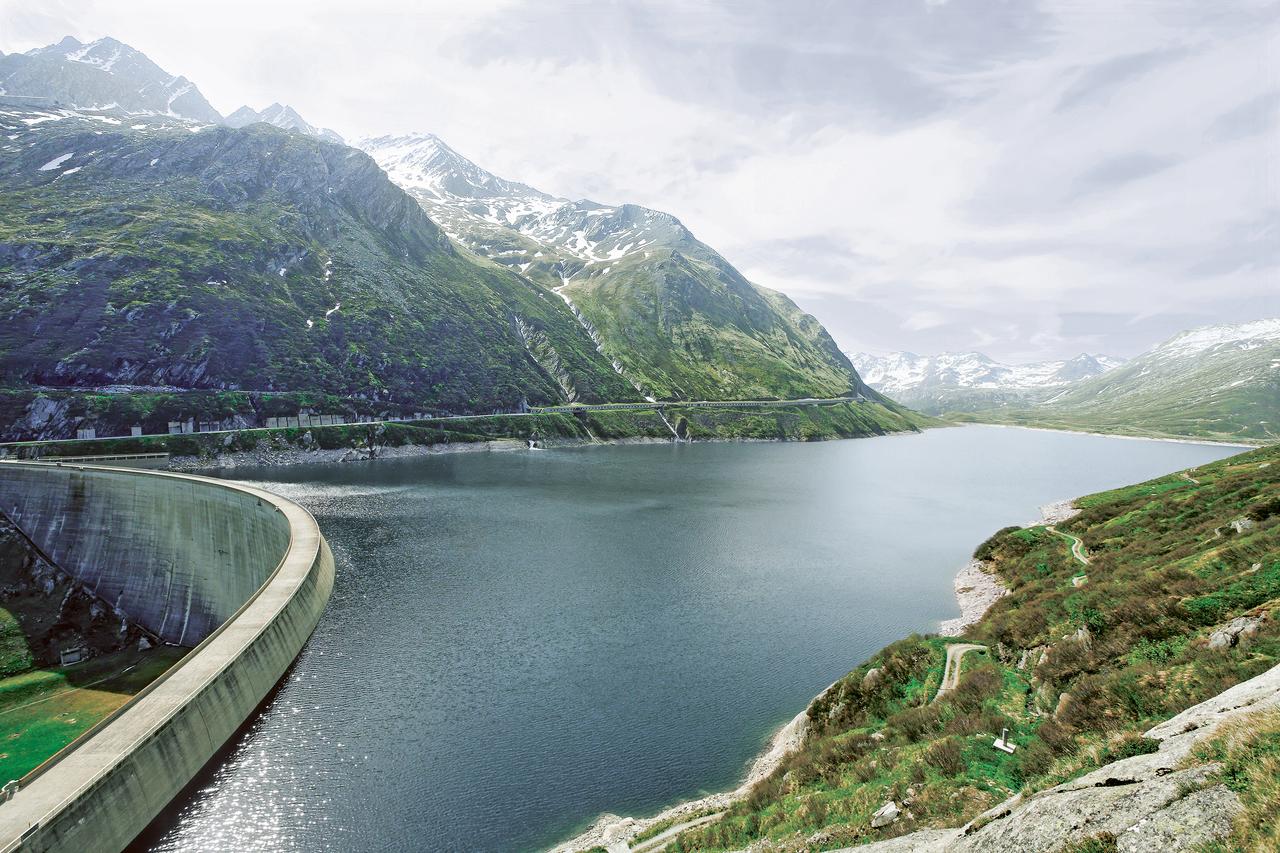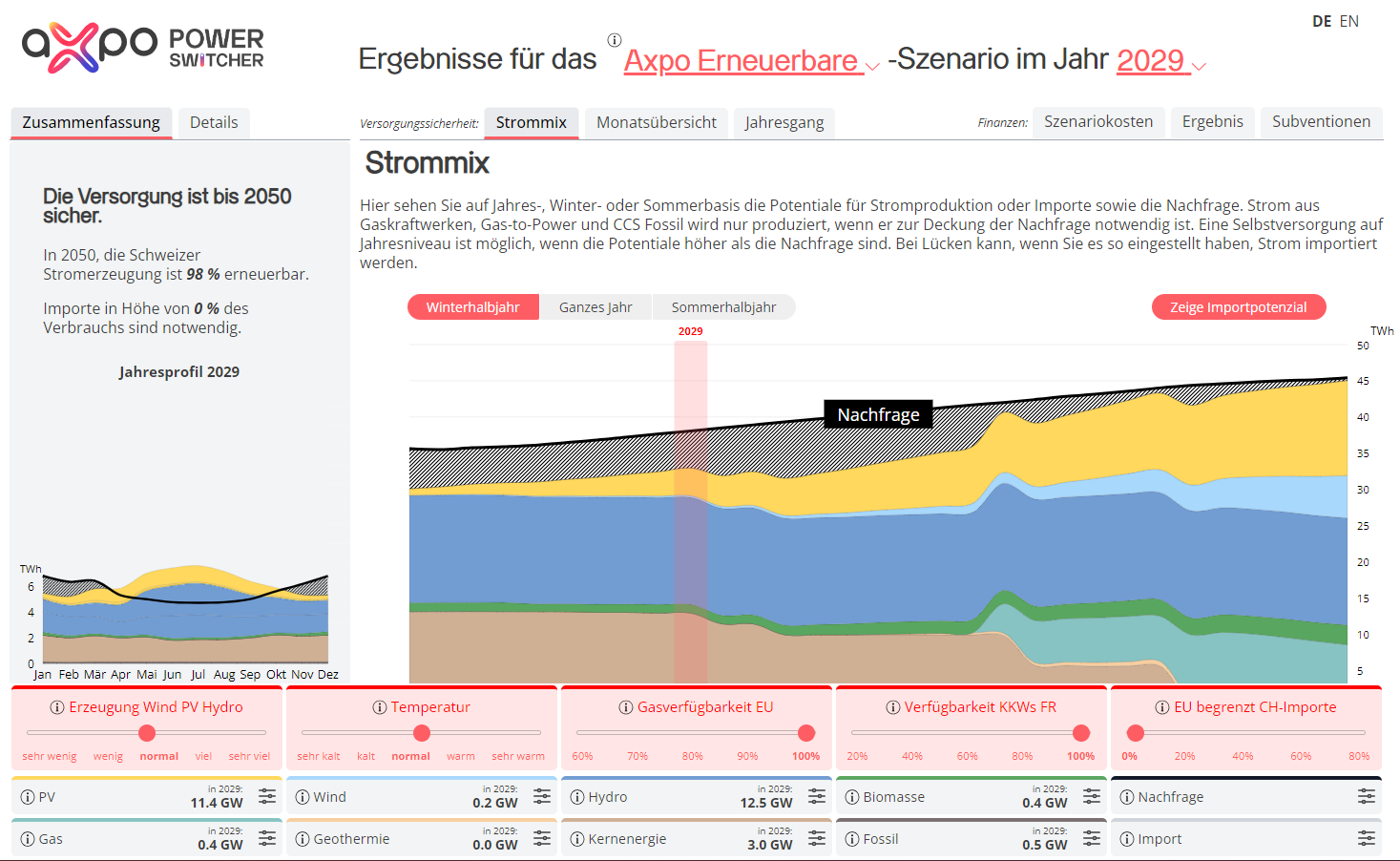23.09.2024 | The ins and outs of investing in a renewable future
Turbocharging Axpo’s Growth
Growth is essential for every business, and Axpo is no exception. For several years, the company has continued to deliver excellent financial results, boosted by smart investments in several successful renewable energy businesses. In the past three to four years alone, an impressive 25 transactions (acquisitions, investments and divestments) have been completed. In this interview, Andreas Schlenker, Axpo’s Head of Mergers & Acquisitions and Partnering & Investing, reflects on the critical role played by his team in driving growth and the energy transition at Axpo, discusses interesting market opportunities and challenges on the horizon, and explains the criteria used in selecting promising startups for strategic partnerships and equity participations with the group.
Andreas, you’re wearing two hats at Axpo. Tell us more about your role.
I'm head of ‘classic’ mergers and acquisitions, so M&A, which also includes divestments and entails larger transactions. At the same time, I’m also heading Axpo’s Partnering and Investing (P&I) business, which basically means working with startups and innovative scale-up companies. Due to the different roles and types of transactions, a team of four people is dedicated to M&A (Corina, Ioannis, Anthony and Ha-Phong), while two colleagues, Georg and Mario, focus on P&I, with both groups working very closely together. We’re a relatively new team: I joined Axpo almost three years ago and most of the team started around the same time.
Could you explain the strategic thinking behind creating such a team?
Axpo’s different divisions have their individual organic growth plans and standalone business cases. We're exploring new investment opportunities to drive growth in both existing and new geographic markets, focusing on renewable technologies which we’ve identified as strategic.
Great examples are Axpo’s acquisitions of wind developer Volkswind in 2015 and solar developer Urbasolar in 2019. We’ve been very fortunate to benefit from Volkswind’s and Urbasolar’s experience, passion and expertise. And combining our strengths meant that we could be successful together very quickly. So very often M&A acts as a turbocharger when it comes to new growth areas or existing businesses. In addition, we have completed a large divestment programme, selling certain non-core assets or minority stakes to improve our focus as a company. Also, these divestments generated funds which we can then re-invest in new areas. Going forward, there will clearly be more investments than divestments.
With innovation embedded across our various teams and divisions, P&I comes into play by working closer with innovative startups. External startups and scale-up companies are usually focused on very specific topics and technologies. In these niches, they move very fast and reach levels that can be more advanced than what we have internally, hence it makes sense that our divisions partner with these companies or even invest in them. Working closely with these innovative companies is a complementary added value for Axpo.
Are you focusing your efforts on Switzerland as well as internationally?
When it comes to divestments, there was quite an equal split. For new investments, such as wind and solar as well as in our newer teams like batteries energy storage solutions (BESS), green hydrogen and biogas, we have been more active abroad. We're always proactively looking for opportunities in Switzerland, but there are simply fewer potential business cases there for investing in wind, solar or BESS. In essence, we’re active where the market opportunities are.
What does a typical day look like for you? Is there such a thing, in fact?
A typical day can be a combination of three main areas. If we‘re working on a transaction, then that obviously takes priority. So, we work on non-binding and binding offers, we manage the various due diligence streams, and negotiate the final purchase or shareholder agreements. Over the last few years, we've often had several transactions in parallel, which can make for pretty intense days, I can tell you!
The second area entails working with our network, liaising frequently with banks, advisors and venture capitalists, because we want to make sure that relevant parties are aware of our strategy. On average we get four or five opportunities a week from advisors all over Europe for M&A, more for P&I. Some are relevant, some less so, but this market knowledge is key. So we speak to advisors and banks from Switzerland and most of Europe.
The third area is internal stakeholder management. We are in constant dialogue with our various business areas and teams, for example CKW, hydro, nuclear, trading and sales or grids – to understand their current strategies, growth plans and any specific issues, to work out how we can best help them achieve their goals. With P&I for example we define search fields, so we can find relevant startups for a strategic partnership or investment.
Which achievements are you most proud of?
On the investment side, we have supported our wind, solar, BESS, green hydrogen and biogas teams with several transactions. No matter how large or small, these are quite significant for their strategy since they are growing teams with ambitious plans. Completing a sizable divestment programme and generating nice capital inflows was another feat. We also completed successful sell-downs for Volkswind, in line with their business model.
On the venture side, we're proud of our first investments. In December 2023, we invested in Eliq, an innovative Swedish smart meter data startup which already works closely with CKW. Additionally, in April 2024 we acquired Swiss drone software company Linia for our grids division.
Which notable trends are you seeing in the M&A market nowadays, and where do you see the most interesting opportunities?
I don’t think there’s been anything drastically new in the last couple of years. We've been riding the renewable development wave, in a very competitive market. We do have very well-established renewables platforms with over 30 years of experience, and we are good at what we do. Unfortunately, for a lot of projects in the pipeline – for instance in Spain and Romania – securing the necessary grid connections can be very complex, and that’s a significant issue which can negatively impact the estimated development costs or even stop specific projects in their tracks.
One trend is obviously the recent growth in hybrid projects, with a combination of wind and solar and batteries. During the energy crisis, these projects were quite expensive to acquire. But since 2022 and especially 2023, valuations have come down a bit, as interest rates and operating expenses have gone up. I think our BESS team is doing a fantastic job, growing quite strongly and developing a lot of new projects, such as the Landskrona facility in Sweden.
What are areas are you currently focussing on in P&I?
For P&I, we look at a wide range of relevant investment opportunities, with startups active in the areas that are relevant for our divisions, such as hydro, grid, trading and sales and Axpo’s CKW subsidiary in Switzerland which has several subdivisions.
Green hydrogen is obviously an interesting “new” energy carrier, and there our team is doing the right thing, focusing on a lot of organic growth, developing new projects in Switzerland and abroad, and basically learning by doing. We are currently also looking at innovative companies and solutions in the areas of heat storage, e-fuels and flex-pooling.
In general, we organise regular updates with our various teams and divisions to discuss growth plans and different areas of interest. When we identify a promising startup, we collect the relevant information, screen it and then discuss a potential investment or partnership.
Our sweet spot are startups in the late Seed and Series A stage, that have achieved a demonstrable product-market fit. We see a lot of innovation and partnership opportunities with Axpo, especially for startups focused on data and software.
Once an investment has been decided, are you managing the day-to-day integration?
When we invest or partner with a startup, it's always with the support of a specific division or team on the operational side. While the investment budget and financial responsibility sits with us, the business team oversees the daily operation and integration of the startup or its technology.
Are there specific criteria which make an investment successful?
When we decide to invest in a startup, first and foremost, it's because we believe in the team and their business case, based on the technology, the market, the financials and so on. Secondly, the investment needs to have an immediate impact on the Axpo division or team which is supporting the transaction: a technology or service that we can immediately work with and where considerable value can be added. So ideally, when we review the investment in five to ten years, both criteria have been met.
If an entrepreneur is interested in pitching their business to you, can they simply get in touch?
We are contacted a lot via e-mail, LinkedIn, our website and, of course, our colleagues who hear of really cool startups. Since last year, we’ve made it a priority to attend and contribute to startup events in Switzerland and Europe, showing the value that Axpo can bring to startups. And yes, we're very keen to hear from the startup community!
Andreas, what drew you to join Axpo three years ago?
I've been doing M&A and investments for over 20 years, in many different roles and industries, though mostly with innovative or technology-driven companies. I felt it was time to do something new and thought Axpo was a super interesting company with a strong position in Switzerland and internationally, and I wanted to be a proactive player in the massive energy transition wave ahead of us. Working in an area that is going to see huge innovation and disruption in the next 20 or even 30 years was very appealing to me. And I've experienced that first-hand in the last three years! There is just so much to do in the energy space! So many investments have been made and need to be made to get us closer to our strategic goals. Whether it's Axpo, the country or society as a whole, the goals for 2030 or even 2050, will only be achieved through considerable investments.
What do you enjoy about the Axpo culture?
Working at Axpo has been interesting, rewarding and purposeful. On the one hand, I get to work with various teams, and we've got fantastic teams and phenomenal people. On the other hand, externally, there's so much happening in the market, and we've been involved in so many different transactions on both the buy and sell sides.
How do you relax after work?
I like sports, skiing, playing football, tennis, and watching way too many series on Netflix, Apple and other streaming services. I only watch the good stuff though, no reality TV (laughing), so currently Slow Horses, Ripley, Succession or The Gentlemen by Guy Ritchie. I also go to the movies and spend as much time as I can with my family.
Do you have a hidden talent?
I always joke that one of my quirky talents, maybe the only one actually, is blocking out any background noise. So when I’m in an open space and people are talking around me or on the phone, I don’t hear that. I'm one hundred percent focused!




.jpg)





